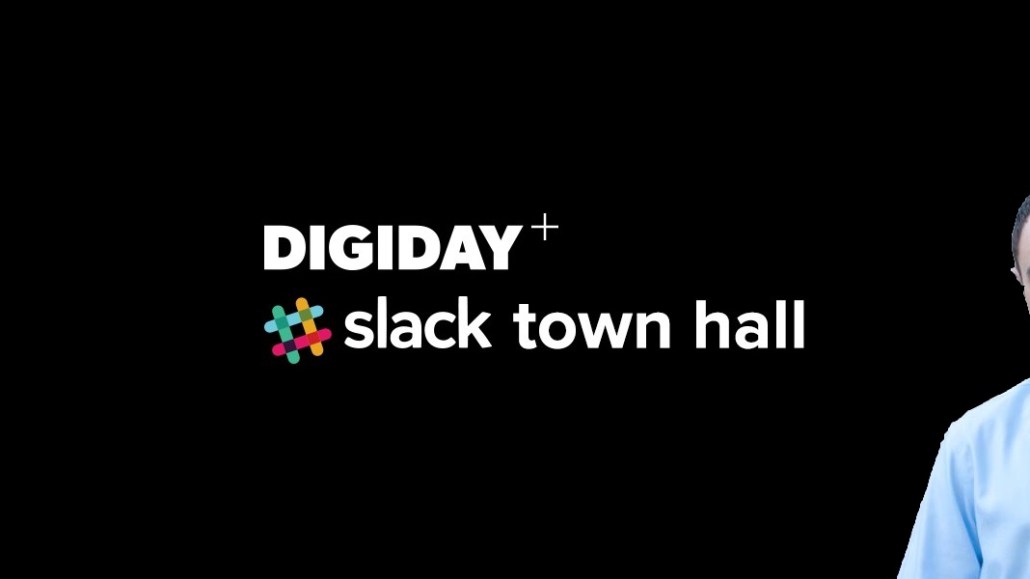Secure your place at the Digiday Media Buying Summit in Nashville, March 2-4
‘Part ego, part angel’: A Slack town hall with The Atlantic’s head of growth Sam Rosen

In December, Sam Rosen became The Atlantic’s first head of growth to focus on strengthening the publication’s direct connections with readers. On Thursday, Rosen joined Digiday+ subscribers for a Slack town hall, where he discussed The Atlantic’s mobile audience, the role platforms play in his business and The Masthead, a new membership product.
The full contents of the conversation are available to Digiday+ subscribers only. Check out some lightly edited excerpts below, and click here to sign up.
On what a ‘head of growth’ does and why that’s a new role
That a media company is building a consumer brand that needs a unified approach to growing audience and earning revenue from customers is a relatively new insight in the journalism world. And that a central group should also enable insights across advertising, edit, consumer marketing, etc., is also relatively new.
[What I do is] analogous to growth in tech companies: Expanding your user base and converting them into active users, making more money directly from readers, understanding the data and insights that can power growth in both advertising and consumer revenue and reaching more people, period.
On how The Atlantic engages readers with The Masthead
We’ve been sending a lot more dedicated emails beyond just newsletters, directly from editors and my team. We get very voice-y, and don’t sound like an institution. We also do daily surveys to make sure people are into what we’re writing. We do one phone call a week with a journalist.
On how he’s selling The Masthead to users
From the get-go, I knew our pitch would be part ego, part angel. Ego, meaning you get exclusive content and insights you can’t get anywhere else, and angel, meaning support our 160-year-old institution in the process. That message seems to be really working for us.
On using paid channels
We do paid social. Our CPA is $25 for a $120 product, so we’re going to keep spending there. Mobile apps have been less significant, partly because we don’t have unlimited resources. We continue to see Facebook Instant Articles and Apple News as acquisition sources.
On the value of platforms
We don’t have a paywall, so there are certain things we can’t take advantage of. But the platform ecosystem shifting toward a focus on paid content is healthy and reflects a realization of the limitations of overleverage (or total reliance) on advertising as the only model that matters.
I understand all of the concerns. But platforms are allowing publishers, legacy and new, to reach a kind of scale that’s historically entirely unprecedented.
More in Media

WTF is a creator capital market?
What is a creator capital market, what does it mean for creators looking to diversify revenue, and why is it so closely tied to crypto?

Media Briefing: Publishers explore selling AI visibility know-how to brands
Publishers are seeing an opportunity to sell their AI citation playbooks as a product to brand clients, to monetize their GEO insights.

Creators eye Snapchat as a reliable income alternative to TikTok and YouTube
Figuring out the Snapchat formula has been very lucrative for creators looking for more consistent revenue on a less-saturated platform.








